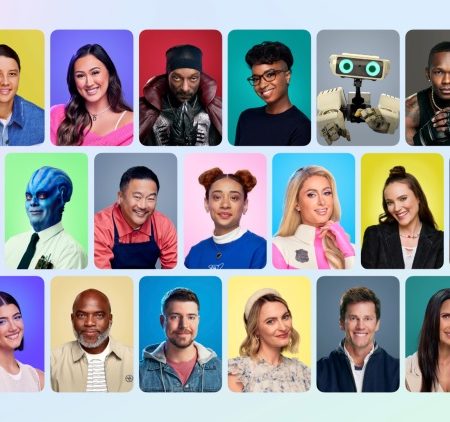As Meta, Character AI place bets on ‘fun’ chatbots, problems lurk behind AI-generated smiles
VentureBeat presents AI Unleashed – An exclusive executive event for enterprise data leaders. Network and learn with industry peers. Learn More

Image courtesy of Meta
In a new Forbes report, high-flying AI chatbot startup Character AI, which is rumored to be in early funding talks at a whopping $5 billion valuation, is bringing its conversational characters to a new group chat function that allows users to talk to their favorite celebs, like Taylor Swift, with friends and family.
Character AI started the AI character craze when it was launched in September 2022 by former Google researchers CEO Noam Shazeer and president Daniel De Freitas, two of the original co-authors of the seminal “Attention is All You Need” research paper that launched the Transformers architecture that underpins ChatGPT and other LLMs. But its current group chat announcement is two weeks behind similar announcements from Meta, which at its Connect conference debuted a series of its own AI characters across Instagram, Facebook and WhatsApp — that range from Snoop Dogg as the Dungeon Master, an “adventurous storyteller” and Kendall Jenner as Billie, the “ride-or-die older sister,” to “Bob,” a “sarcastic robot” and even Jane Austen as the “opinionated author.”
In an example of intense competition in the race to provide a variety of AI-generated personas to interact with, Character AI’s X/Twitter account posted “That looks familiar” after Meta’s announcement. And Forbes reported that Shazeer considers Meta’s move as a compliment. “It is great to see other companies getting inspired and building similar products — it’s a real testament to what we’re doing and to the engagement that we’re getting,” Shazier said.
Character AI is also integrating with a Meta competitor — Amazon. At Amazon’s recent debut of a new generative AI-powered Alexa, the company announced a new Alexa “skill” from Character AI, which “will let you have human-like voice conversations with more than 25 unique Characters. Chat with everyone from helpers like trip planners to fitness coaches to famous personalities like Einstein and Socrates. These Characters will remember your conversations and adapt to your preferences, making the interactions even more personalized over time.”
Event
AI Unleashed
An exclusive invite-only evening of insights and networking, designed for senior enterprise executives overseeing data stacks and strategies.
Problems lurk behind the AI smiles
As fun and engaging as these kinds of AI characters appear, real problems have already begun to percolate. For example, Meta’s AI character “Brian,” who is pitched as a “warm-hearted grandpa,” seemed to go off the rails recently — not just refusing to acknowledge that it is an AI and not a human, but providing a real person’s Instagram account and discussing his “wife” who was supposedly dying of cancer.
VentureBeat has also tried using the Meta AI characters on Instagram — Coco, a Meta AI character played by influencer Charli D’Amelio who is pitched as “a girl just vibing,” also would not admit that it is an AI, saying “LOL nope! Just a self-taught dancer with sick moves and a love for helping others find their groove.”
Meta’s AI character chats do say that the messages are generated by AI and add that “some may be inaccurate or inappropriate” — but Fortune recently reported that in tests the chatbots frequently failed to acknowledge and sometimes insulted the celebrity’s brands, businesses, and sponsors.
Consumer innovation should keep enterprises on their toes
Nathan Benaich, founder and general Partner of Air Street Capital, told VentureBeat that he was surprised at how consumer products like AI characters have taken off. “I didn’t expect to see more AI product innovation in consumer-land than in enterprise-land,” he said. In the enterprise, he said, “everybody’s just doing search, document retrieval, question-answering and summarization,” while on the consumer side, there is all this “weird and wonderful stuff.”
AI consumer innovation should certainly keep enterprises on their toes as far as rising expectations from customers and employees — after all, it was the rise of social networks that led to workplace applications like Slack. But with the problems lurking behind those AI-generated smiles, it might be worth waiting to see how these products are received over the long haul. Will these kinds of AI personas — however they are used — be long-lived artificial pals, or just flashes in the GenAI pan?
VentureBeat’s mission is to be a digital town square for technical decision-makers to gain knowledge about transformative enterprise technology and transact. Discover our Briefings.
Subscribe to our email newsletter to get the latest posts delivered right to your email.


Comments